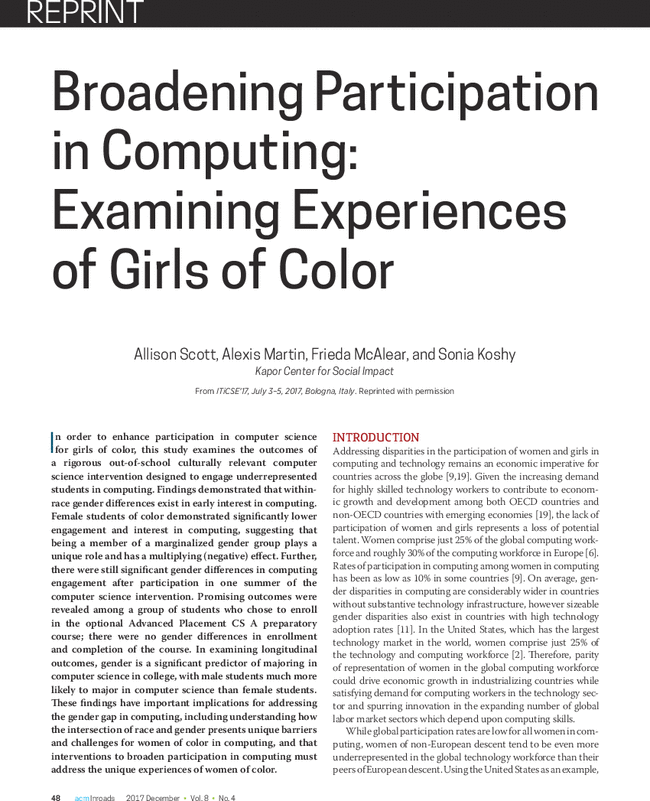Cited By
View all- Isaac JGardner-McCune CGilbert JPearson TStrickland CIsrael M(2024)Understanding Social Good-Based Introductory Computer Science Pedagogy for Black BoysProceedings of the 2024 on RESPECT Annual Conference10.1145/3653666.3656112(128-132)Online publication date: 16-May-2024
- Xu YLiu JWen Y(2023)From accessibility to participation: Broadening diversity and inclusion in higher engineering and computing education through an OOICCI model2023 IEEE Global Engineering Education Conference (EDUCON)10.1109/EDUCON54358.2023.10125233(1-6)Online publication date: 1-May-2023
- Grande VLennerfors TPeters Avon Hausswolff K(2023)The virtuous, the caring, and the free: ethical theory to understand the ethics of the teacher as a role model in engineering educationEuropean Journal of Engineering Education10.1080/03043797.2023.223695949:1(1-21)Online publication date: 22-Jul-2023
- Show More Cited By


